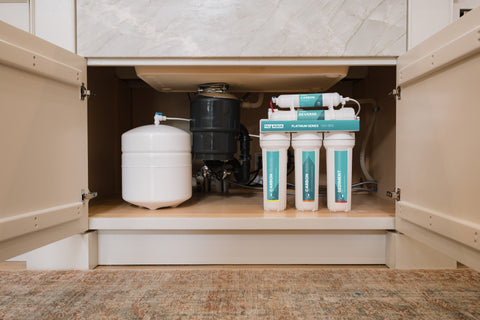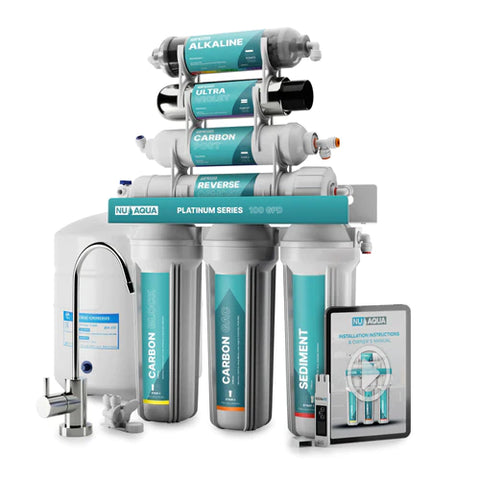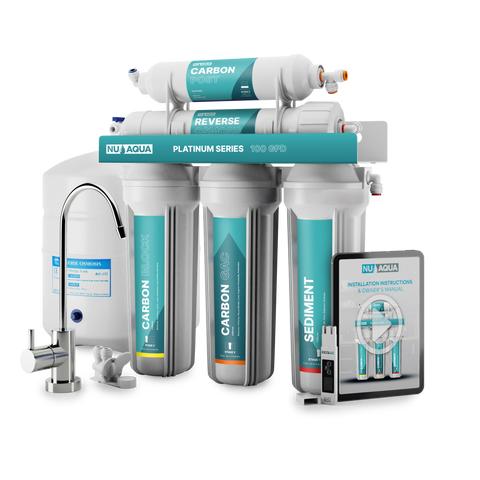Access to clean and safe water is essential for rural homes and off-grid living. Whether you are facing water quality challenges or relying on alternative water sources, implementing effective water filtration systems is crucial. In this blog post, we will explore various water filtration options, DIY methods, sustainable solutions, and maintenance tips to help you ensure a reliable supply of clean water in your rural home or off-grid living setup.
Living in rural areas or off-grid locations often presents unique challenges when it comes to accessing clean and safe water. Traditional water sources may be prone to contamination, and the lack of infrastructure can limit options for water treatment and filtration. However, with the right knowledge and resources, it is possible to implement effective water filtration systems that ensure the availability of clean water for various purposes.
Importance of Water Filtration for Rural Homes and Off-Grid Living
In rural areas and off-grid living situations, access to clean and safe water is crucial for maintaining health and well-being. Unfortunately, natural water sources such as wells, springs, or rainwater collection systems can be susceptible to contamination from various sources. Contaminants may include sediment, bacteria, viruses, chemicals, and other impurities that can pose health risks when consumed or used for daily activities.
Implementing a reliable water filtration system helps remove or reduce these contaminants, ensuring that the water you consume and use is free from harmful substances. By investing in a suitable filtration system, you can protect yourself and your family from waterborne diseases, enjoy better-tasting water, and enhance overall quality of life.
Types of Water Filtration Systems
When it comes to water filtration systems for rural homes and off-grid living, there are various options to choose from, depending on your specific needs and water quality concerns. Let's explore some common types of water filtration systems:
-
Activated Carbon Filters: Activated carbon filters use a highly porous material to adsorb impurities and contaminants, including chlorine, volatile organic compounds (VOCs), and certain chemicals. These filters are effective at improving water taste and odor. The NU Aqua whole home water filtration system uses activated carbon filtration to clean all the water entering the home.

-
Reverse Osmosis Systems: Reverse osmosis (RO) systems utilize a semipermeable membrane to remove a wide range of contaminants, including bacteria, viruses, heavy metals, and dissolved solids. RO systems provide comprehensive filtration and produce high-quality drinking water.

-
UV Sterilization Units: UV sterilization units use ultraviolet light to kill or inactivate microorganisms, such as bacteria and viruses, present in the water. These units are often used in combination with other filtration methods to ensure complete disinfection.

TOP 3 RO System Recommendations for Rural Homes
-
NU Aqua Platinum Series 7 Stage Alkaline and UV Ultraviolet 100GPD RO System: The system utilizes HydraCoil™ technology, resulting in 50% cleaner water than similar systems. The carbon filters have a higher absorption rate due to advanced manufacturing, removing up to 99% of contaminants like lead, fluoride, bacteria, and more. The NU Aqua Platinum Series 7 Stage Alkaline and UV 100GPD RO System ensures safe drinking water by using an advanced UV bulb to purify water from both ground and surface sources. UV light is effective in eliminating bacteria, viruses, protozoa, and certain algae, making it an ideal solution for rural regions with potentially contaminated water sources. Unlike other methods, UV light doesn't interact with water or its chemicals, ensuring no harmful disinfection byproducts (DBPs) are formed, which is a significant benefit of UV filtration. Additionally, the NU Aqua Alkaline Filter has a 5-Stage remineralization process enhancing the water's taste and enriching it with essential minerals and antioxidants. Depending on your water pressure, the system can come with or without a booster pump.

-
NU Aqua Efficiency Series Tankless 800GPD UV Sterilizer & Alkaline Remineralization Reverse Osmosis System 2:1 Pure To Waste: The system now features an upgraded Stage 3 800 GPD Membrane. This tankless system delivers high-quality, safe water in less space and time than traditional units. It has integrated water channels with durable design that prevents leaks. Has an ultra silent booster pump which increases system efficiency and works for homes with low water pressure. It also has a locking filter design that ensures filters are properly installed.
This system also has an internal channel filter design that routes water efficiently across all filter media that drastically improves filtering capabilities. It also has a spring lock filter that prevents water leaking during filter changes. The compact tankless design is made to free up more space, the front facing filters make filter changes easy and it has a rectangular shape to utilize space more effectively. This system boasts a filtration rate of 800 gallons daily and a 2:1 pure to waste water ratio, making it more efficient and eco-friendly than many 5-stage RO systems. Its tankless design delivers water instantly, bypassing the need for a storage tank, resulting in 400% greater efficiency compared to standard RO systems. The system now features an Alkaline Filter and a UV Sterilizer that reminiralize the water and kills harmful micro-organisms.
-
NU Aqua Platinum Series 5 Stage 100GPD RO System: The system processes 100 gallons daily, adequate for a six-member household's water needs, from drinking to cooking. Moreover, it benefits plants by providing purified water, encouraging better growth. The Platinum Series doesn't impact the main faucet's water pressure, and it comes with a dedicated chrome faucet for easy access to purified water.
The NU Aqua Platinum Series 5 Stage 100GPD RO System offers a top-tier RO experience. It arrives 90% ready to install with color-labeled tubes for easy setup. Its unique ridged sediment design extends filter lifespan by 25% compared to regular filters. Additionally, it includes a leak detector for prompt detection and prevention of leaks and a complimentary TDS meter to instantly gauge your system's performance.

To maximize your RO system's benefits, you can sign up for the NU Aqua Filter subscription.
- Stay on Schedule: Have your replacement filters delivered directly to your door as a physical reminder they need to be replaced.
- Save Over 10%: Joining the filter club ensures you get the best price possible on your replacement filters.
- Lifetime Warranty: Being a Filter Club member locks you in an extended lifetime warranty on any NU Aqua Reverse Osmosis filter system.
DIY Water Filtration Methods for Rural and Off-Grid Homes
-
Sand and Gravel Filters: Uses layers of sand and gravel to trap impurities and sediment.
-
Activated Charcoal Filters: Utilizes activated charcoal to strain out contaminants and enhance water quality.
-
Solar Water Disinfection (SODIS): Employs sunlight to eliminate microorganisms in water using clear PET bottles.
Note: While these DIY methods are useful, they might not match the efficacy of professional filtration systems. They are best suited for temporary solutions or specific treatment needs.
Sustainable Water Filtration Options for Rural and Off-Grid Living
-
Bio-sand Filters: A green, cost-effective system that uses sand and beneficial microbes to purify water. A biofilm develops and aids in biologically breaking down contaminants.
-
Drip Irrigation Filters: Improves water quality for irrigation by removing impurities, ensuring plants get uncontaminated water and conserving water.
-
Plant-Based Filtration: Uses aquatic plants, gravel, and sand to naturally treat water. It's effective for treating greywater or enhancing water quality in small water bodies.
-
Rainwater Filtration and Collection Systems: Harvests and stores rainwater, providing a sustainable water source. Filtration mechanisms remove debris before storage.
-
Reusable Water Filters: Minimizes waste by employing reusable filter components, decreasing plastic waste and the frequency of replacements.
Maintaining Your Water Filtration System for Longevity and Effectiveness
Proper maintenance is essential for the longevity and effectiveness of your water filtration system. Regular maintenance ensures that the filters are clean, functioning optimally, and providing the desired level of filtration. Here are some maintenance tips to consider:
-
Follow Manufacturer's Instructions: Read and follow the manufacturer's instructions for installation, usage, and maintenance of your specific filtration system. These guidelines will provide you with important information regarding filter replacement schedules, cleaning procedures, and other necessary maintenance tasks.
-
Replace Filters Regularly: Filters have a limited lifespan and will become less effective over time. It is important to replace the filters as recommended by the manufacturer to ensure that your water remains adequately filtered. Keep track of filter replacement schedules and have spare filters on hand.
-
Monitor Water Quality: Periodically test your water quality to ensure that the filtration system is effectively removing contaminants. Water testing kits are available for home use and can help you identify any changes in water quality that may require adjustments or maintenance.
-
Clean and Sanitize: Clean and sanitize your filtration system as per the manufacturer's instructions. This may involve rinsing the filter media, scrubbing filter housings, or using approved sanitizing agents. Regular cleaning helps maintain the system's performance and prevents bacterial growth.
-
Inspect for Leaks: Regularly inspect your filtration system for any leaks or signs of damage. Address any issues promptly to prevent water bypassing the filtration process and compromising water quality.
Access to clean and safe water is vital for rural homes and off-grid living. By understanding the available water filtration options, implementing DIY methods, considering sustainable solutions, and maintaining your filtration system, you can ensure a reliable supply of clean water.
Remember, each rural home and off-grid living situation may have unique water quality concerns and requirements. Conduct water quality tests, seek professional advice, and tailor your filtration system to address specific needs for optimal results. Regular maintenance and monitoring of your water filtration system are also essential for long-term effectiveness.
For more information on water filtration systems and sustainable solutions, you can visit our website at www.nuaquasystems.com.
Disclaimer: The information provided in this blog post is for general informational purposes only and should not be considered as professional advice. It is recommended to consult with experts or professionals in the field for personalized guidance and solutions based on your specific circumstances.



